The content of the article
Well, what mother does not know what is residual cough in a child? First, the active phase of the disease occurs - increased body temperature, significant cough, increased secretion of nasal mucus, and general malaise. As a rule, acute respiratory viral infections in the acute period lasts no more than 7 days, usually 1-3 days. The disease ends, but leaves an aftertaste - a long, residual cough. It seems that coughing does not occur often, and overwhelmingly, cough is mild. But the very fact of a cough, even a rare one, forces parents to take serious measures to eliminate it.
Why cough does not pass a long time
If a cough after an acute respiratory viral infection does not go beyond two weeks, then there are certain reasons for that. Here are some of them.
- Bronchitis, pneumonia, whooping cough. Sometimes a simple cough is not as simple as it seems. Often simple tracheitis can develop into bronchitis - acute or chronic. With the ingestion of pertussis or pneumococcal sticks, a cough develops - strong and long. For whooping cough is characterized by a long (up to six months) paroxysmal cough, which is not removed by anything. In inflammation of the lungs or bronchi, you can hear characteristic rales when listening.
- Allergy. Frequent cough from viral turns into allergic. This is especially true for allergies. If a baby has a predisposition to diathesis and other rashes, if parents are allergic, cough may well be a reaction to dust, pollen, the smell of cigarettes or household chemicals, sweet foods. In this case, you should try to give the child an antihistamine drug. If the cough has stopped, then it is allergic.
- Snot. If the coughing occurs on the background of nasal discharge, and is also activated mainly only at night, then snot is provoked by it. When the child is in a horizontal position, mucus flows from the nose, falls on the back of the larynx, irritates it and provokes a cough reflex.This may also include chronic diseases of the upper respiratory tract, for example, enlarged adenoids.
- Worms It so happens that a prolonged cough is not associated with inflammation of the respiratory system. If during the inspection in the lungs there are no wheezing, no snot and red throat, then you need to check for parasites. Some types of worms, for example, roundworm, walk around the body, getting from the intestine into the blood, and then settle to the lungs. In the process of vital activity, ascarids release toxins that act and irritate the walls of the lungs, thereby causing a cough. Therefore, allergists and pulmonologists with a long cough are always advised to check for the presence of helminthic invasions. To detect worms you can donate feces and blood from a vein.
- Carditis. A prolonged cough can occur against the background of some cardiologic diseases, especially as a complication after previous sore throat and other diseases. In this case, in order to eliminate the problem, it is worthwhile to see the cardiologist.
- Fungi. If a child drank antibiotics, often after that the intestinal microflora and the oral mucosa are disturbed. Because of such an imbalance on the tonsils, fungi can begin to develop, which in no way produce themselves - the mucosa remains pink, there is no inflammation.The only manifestation is irritation of the laryngeal wall, which is why coughing occurs. To check the presence of the fungus, you need to pass a bacteriological culture of the pharynx.
These are the main areas that may be useful to you when looking for the cause of a prolonged cough that does not go away. If you have excluded all of them, then most likely you have chronic tracheitis or bronchitis, which is manifested only by rare minor coughing. You can get rid of residual cough.
Should antibiotics be used to treat residual cough
If the cough lasts for several weeks, but with rare coughs, you probably will not need antibiotics. You can get rid of residual cough with the help of a set of measures - herbal medicine, warming up, physiotherapy, massage, inhalation, recipes of traditional medicine.However, before this it is important to consult a doctor to rule out a serious illness. If the doctor does not prescribe you antibiotics, then you can safely use the following tips to combat residual cough.
Cough Inhalation
Why are inhalations considered one of the most effective ways to combat cough? The fact is that when we inhale hot bactericidal vapor, small particles fall directly on the walls of the trachea, lungs, and walls of the larynx. In this case, we get a much more pronounced medicinal effect than when taking expectorant drugs. After all, they go straight to the esophagus and the stomach.
It is best to do inhalation with a nebulizer. Under the influence of an aerosol, the particles of the drug are sprayed so much that the child can easily inhale the healing steam. For the solution in the nebulizer, you can use drugs for cough - Lasolvan, Atsts, Gerbion. And you can also make inhalation with simple saline or mineral water.
If there is no inhaler, try breathing with your child over a saucepan or basin of hot water. It is worth admitting that such a procedure is not to the taste of many children, so we will act in other ways.Drug liquid should be poured into an iron cup or a wide pan and put on high heat. Tightly close the doors and windows in the kitchen, and we are in the floating room for at least half an hour (we do not remove the boiling pot from the fire). This will allow you to effortlessly breathe hot steam for the child. As a medicinal composition for inhalation, you can use:
- A solution of furatsilina, miramistina, hlorofillipta.
- Sea water - baking soda, salt and iodine.
- Decoction of medicinal herbs - chamomile, calendula, nettle, St. John's wort.
- Essential oils of the asterisk balsam.
- Fir oil and tea tree oil.
The effect of inhalation and has a simple Russian bath. No wonder that she treats many colds. To get healing steam, any of the prepared medicinal solutions you just need to splash on hot stones. Often visiting the bath, the child will stop coughing and will be sick less often.
Warm chest when coughing
Often, any warming of the breast is the main condition on the road to recovery. Here are some effective and safe recipes.
- You can warm the chest with animal fat.For a few days, grease the baby’s chest with badger or goose fat to finally get rid of cough.
- Make honey mustard cake. To do this, mix two tablespoons of honey, half a teaspoon of mustard, two spoons of butter and flour so as to make a flat cake. Apply a warm cake to the breast of the child for a few hours. Mustard irritates the skin, increasing blood circulation. Honey warms and gives a long feeling of warmth. Oil protects the skin from irritation. Flour is necessary to obtain the desired consistency.
- Mix vodka and honey and rub the baby’s chest and back with this mixture before bedtime.
- It is very good to make mustard foot baths - this is one of the best remedies for prolonged coughing.
Warming up will help relieve residual inflammation and relieve coughing.
How to treat residual cough - tips
Residual cough is characterized by good health, lack of fever and other manifestations of the disease. But if you do nothing, such a cough can last for months. We will give you useful tips to help you get rid of annoying coughs.
- In the treatment of diseases of the respiratory organs, clean air is of great importance. If you walk with your child on the street at least 3-4 hours a day, in a week there will be no trace of coughing. Ventilate the rooms in the apartment as often as possible, in summer you can leave the windows open.
- Avoid sudden changes in temperature, exclude drafts during ventilation. It is best to place the child in one room, while others ventilate. After that, the room can be changed. Do not leave the child in a draft - he can get sick again.
- Eliminate mucosal allergens. To get rid of dust, you need to do a daily wet cleaning. Get rid of cigarette smoke, aerosol spraying deodorants and household chemicals.
- It is very important to avoid dry air. In winter, moderate the intensity of the radiator, install a humidifier.
- To speed up sputum discharge, a baby can be given a percussion massage. At least several times bring your baby to a physiotherapist to see the massage technique. Subsequently, you can do it yourself.
- You can get rid of annoying coughing by warming up in a physiotherapy room.The most effective procedure is UHF.
- Decoction of anise seeds helps to obtain an expectorant effect. Juice of black radish with honey will stop even a strong cough. And milk with honey before bedtime will help relieve inflammation and relieve night coughing episodes.
- Respiratory gymnastics, which is best done outdoors, can help cure residual coughing. Inhale deeply and exhale to clear the allergens from the lungs. For the same purpose, you can inflate balls - such treatment will be not only effective, but also fun.
- In addition, you need to drink more to wash the remnants of the virus from the body. Food, on the contrary, should be light, balanced, fractional. Do not insist if the child does not want to eat.
All these tips apply to treating a cold cough. If the child’s cough is allergic in nature or has occurred against the background of parasites, the treatment changes radically. In addition, you need to be examined by the ENT, because often the cough remains on the background of no cured diseases of the throat and nose.
On the one hand, residual cough is a minor symptom that does not torture the child and allows him to live life to the fullest.But on the other hand, there is still a cough, it irritates with its presence and often becomes the reason that the child is still sitting on the sick-list and cannot go to school or kindergarten. Cough, whatever it is, does not tolerate neglect. Do not leave a residual cough unattended - protect the health of your child!
Video: cough treatment in a child

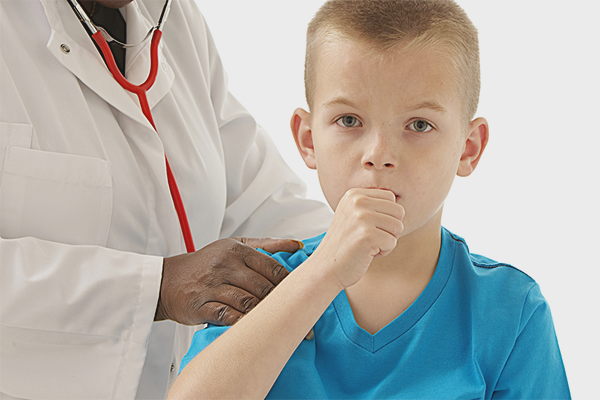
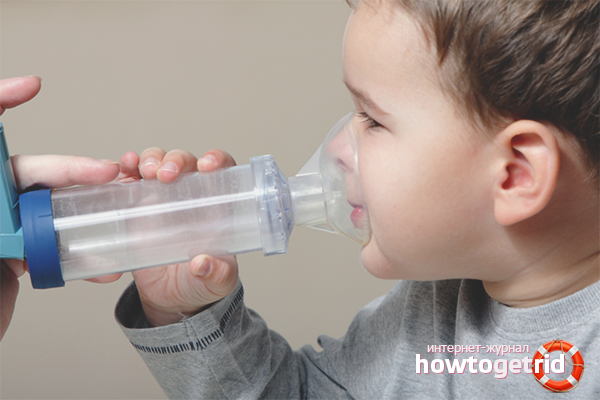
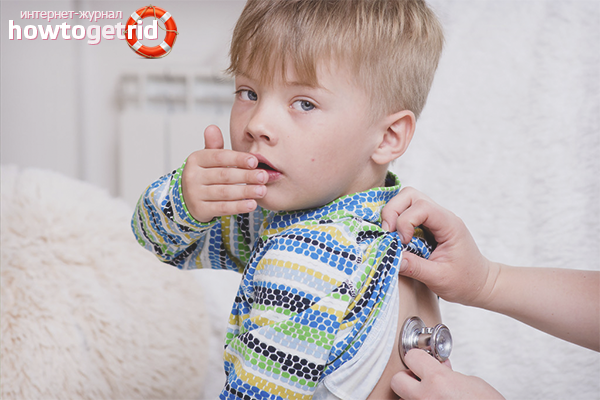
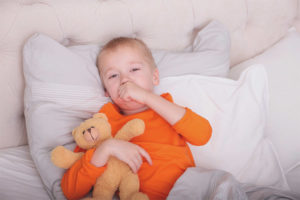
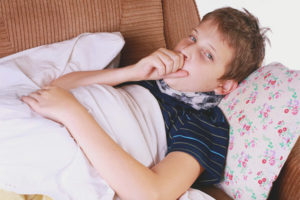
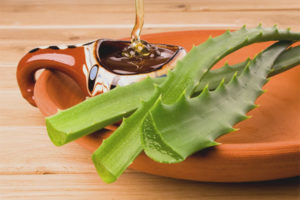
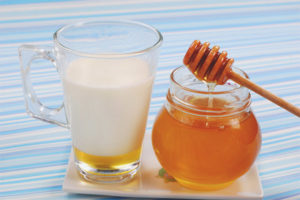

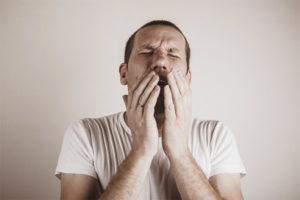
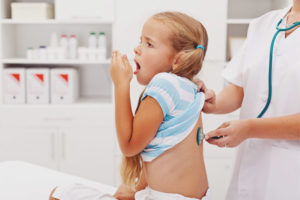

To send